[ad_1]

Srijoni Roy (inset); her works
| Photo Credit: Special arrangement
In the hands of Kolkata-based artist Srijoni Roy, ceramic art attains a new form in varied ways. An alumna of the National Institute of Design (NID), Ahmedabad, Srijoni was born as a hearing-challenged baby. Her imagination takes flight in ceramic art. “Srijoni views the world as a silent movie, translating its beauty and essence into her artistic pottery, ” says her mother, Sukanya, adding, ”Her handmade ceramic pieces reflect a blend of traditional techniques and contemporary aesthetics and are celebrated for their artistic richness and craftsmanship.”
Decorative art
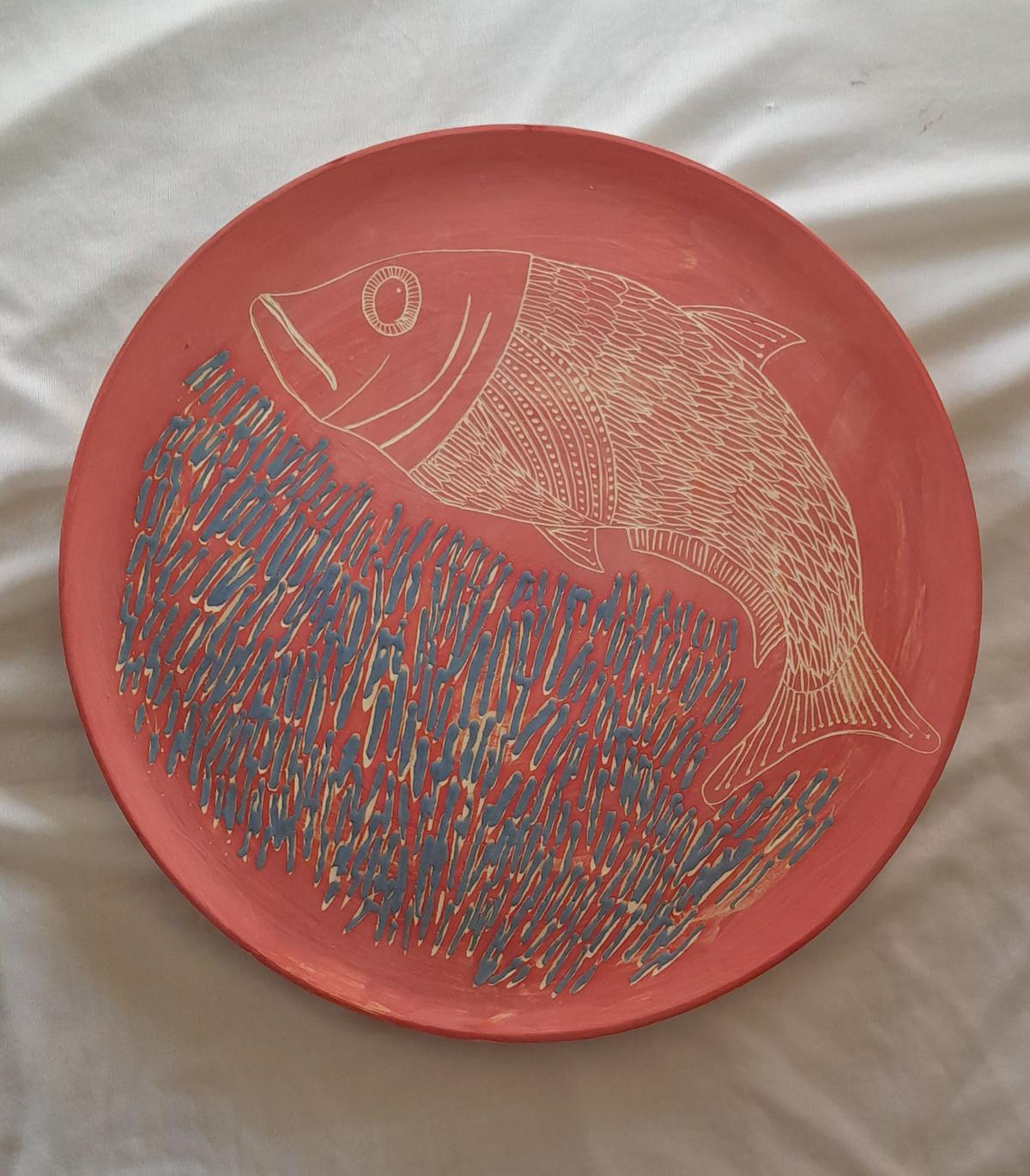
Wall plate by Srijoni
| Photo Credit:
Special arrangement
Srijoni creates decorative pottery tea sets, wabi-sabi (visibly repaired pieces of ceramic) bowls, wall plates, and floor lamps in her ceramics studio Bakeclay Studio (bakeclay.com) in Kolkata. She recently displayed her collection at an exhibition by Baromarket in Hyderabad.
Srijoni shares her story over an email, a story of grit, her parents’ support and finding an avenue of expression in ceramic art.
Choosing art
Srijoni “could see, smell and feel but could not hear since childhood” and had to undergo speech therapy sessions to pronounce the syllables. Life seemed like a ‘silent movie reel’; without hearing aids, she could not hear the thunder, only feel its vibration, she mentions.
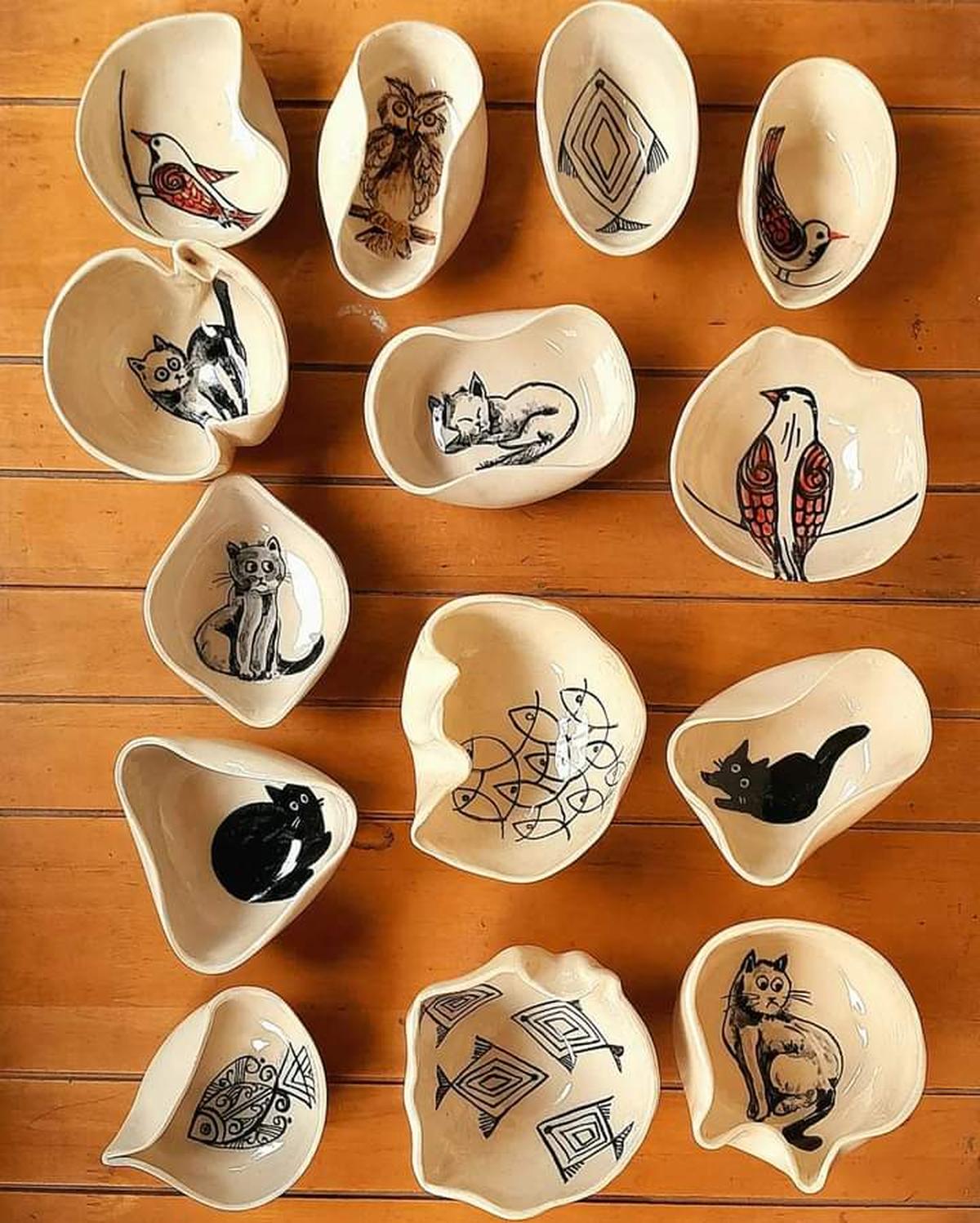
Wabi-sabi bowls by Srijoni
| Photo Credit:
Special arrangement
Srijoni ”fell in love with anything visual and enjoyed painting, sketching and photography. In the ‘science or art to study’ dilemma in Standard XII, art was the choice” as it came naturally to her followed by a bachelor of design degree at the NID. . After the first year of foundation, she opted for ceramics and has been working on the medium as her canvas. “It is engaging and makes me happy.”
Exploring traditional pottery
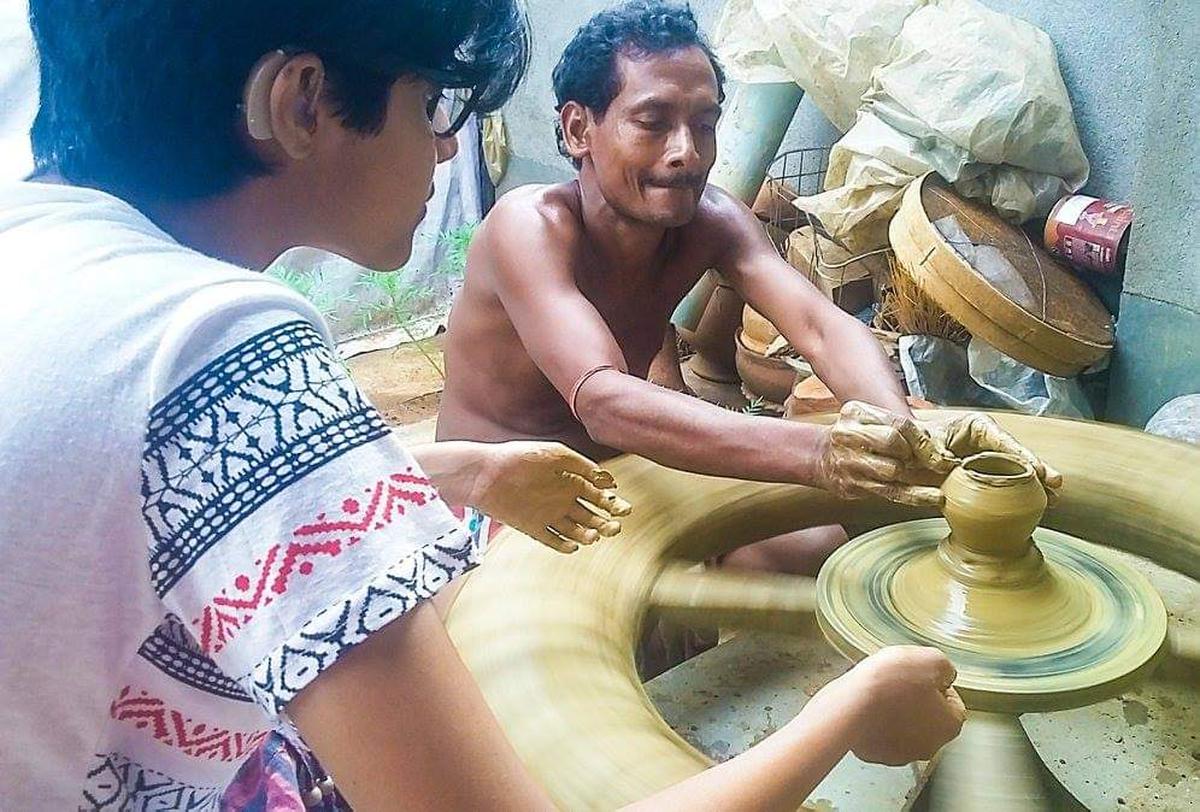
Srijoni at Panchmura with a potter’s family
| Photo Credit:
Special arrangement
A visit to Panchmura (West Bengal) in 2017 to live with a potter’s family helped her explore traditional pottery and witness their routine – collecting clay from a faraway pond, drying and firing it in a kiln. Srijoni, who also tried her hand at a huge manual wheel, says, “The craftsmen are popular in making clay horses and terracotta items. This came from a tradition of offering clay horses and elephants to the deities.”
A month-long stay in Jaipur in 2018 for a craft documentation course led her to a new love: painting on ceramics. “ Blue pottery is made of quartz powder and not clay. Like everybody, I was hypnotised by the blue colour.”
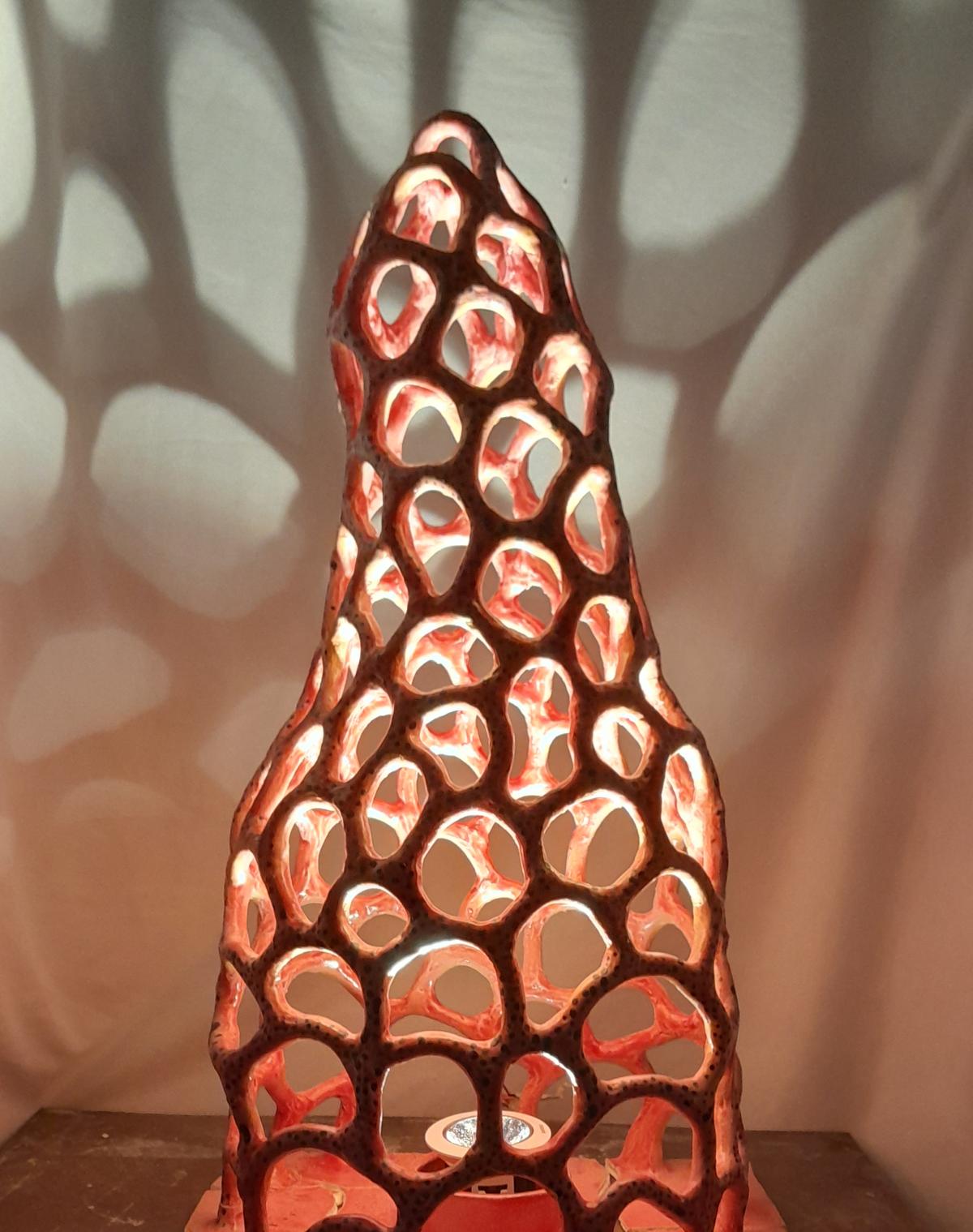
Floor lamp by Srijoni
| Photo Credit:
Special arrangement
The NID graduate interned at Anvi Pottery under artist Sandeep Manchekar to be a hands-on ceramist. Starting a small workshop on the terrace of her house in Kolkata in 2019 was a step to nurture her dream. “I put in hard labour as it was my only survival plan. I am still learning, and experimenting with forms and colours but my efforts didn’t go to waste. My designs are ergonomic and visually good.”
Marketing her products offline is tough but the virtual platform opens a window. “Since I cannot communicate, my mother helps me during offline exhibitions.. Thanks to the internet and social media, I have it easier than my predecessors (hearing-impaired artists).”
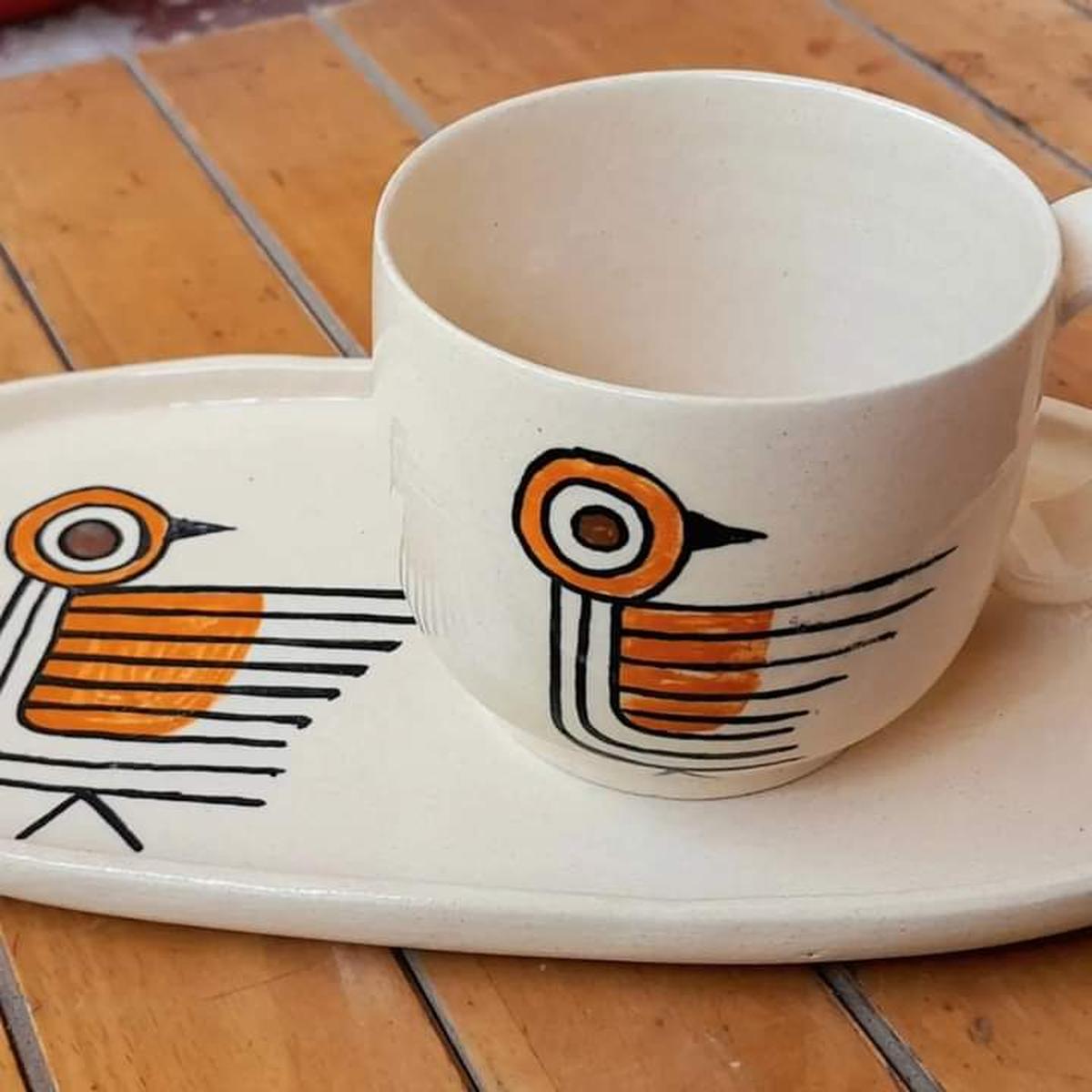
Exquisite ceramic art
| Photo Credit:
special arrangement
Ceramic art has given Srijoni a sense of empowerment, pride and inspiration, and she credits her parents for those assets. “They told me deafness is normal.” Although she was bullied when she was young, she survived tough times by building resilience. Individuals with disabilities need to learn to ignore sympathy, she says. “Identify what we (hearing-challenged people) can do best and find a way to work towards the dream. The world may be initially dismissive, but will accept when we make a mark in our own little way.”
[ad_2]
Source link





